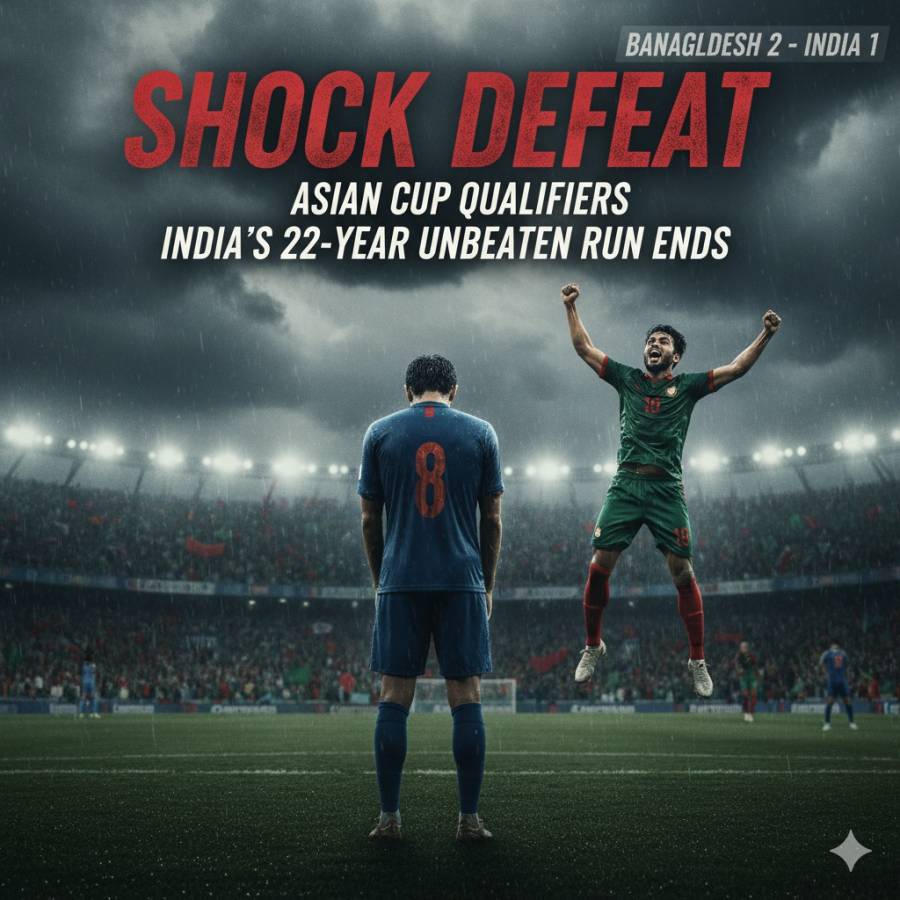
In a result that will undoubtedly send ripples of concern through the corridors of Indian football, the national team has suffered a humbling defeat to Bangladesh in the Asian Cup qualifiers. The 2-1 loss, which took place in Dhaka, marks the first time since 2003 and only the second time since 1947 that the two nations have not drawn a match in this group stage fixture. This setback comes at a crucial juncture, dampening the spirits of fans and raising serious questions about the team's readiness and strategic depth.
The campaign in Dhaka has been fraught with difficulty for the Indian squad, compounded by the recent 1-2 loss to Singapore just last month in the home leg of the championship. With over 23,000 passionate spectators packing the National Stadium for the second leg against Bangladesh, the atmosphere was electric, yet the performance on the pitch failed to match the intensity of the occasion.
India's recent history in this championship has been a roller-coaster. The team managed to scrape through to the finals with a swift break scoreline in the 2003 SAFF championship, a victory that initially provided a glimmer of hope. However, the current form suggests a significant regression, leading many to wonder where the side's true capacity lies.
The match itself was a tale of missed opportunities and tactical missteps. India's woes began early with the first half seeing an unfortunate injury to Manun Marma, who had been the linchpin of the attack. His departure necessitated an immediate tactical shift, with Macarton Louis Nicksan, who had failed to impress in the first half, being replaced by Khalid Jamil. This substitution was part of a larger rebuilding process that has seen coach Mohammad Sanai rely on players who can serve the team well.
The decisive goals came minutes after the restart, with Laithunmanga Pamei capitalizing on a crucial delivery in the 67th minute to equalize. This was followed shortly by a well-taken chance from Brison Fernandes with an accurate delivery from Jamil on target.
Despite the renewed offensive pressure, the Indian defense struggled to contain the Bangladeshi counter-attacks. Suresh Wangjam’s free kick, with Rahim Ali unable to convert, exemplified the team's struggles in front of goal. Furthermore, the defensive lineup, which included 21-year-old Marma who played a dedicated role in the back, struggled with the pace and aggression of the opposition. The referee, Clifford Daypat, added to the frustration by denying India what appeared to be a clear penalty, despite Sukham being fouled. The subsequent play, driven by Vikram Partap Singh, saw India continue to press, but the inherent advantage was lost.
The second half also saw a flurry of activity, with Humza Choudhury and Zuala Chhangte missing vital opportunities. Towards the end, Jamil's decision to bring on new players, including Brison Fernandes and Humza Choudhury, proved to be a gamble that did not pay off fully, as the team failed to secure the necessary goal to draw level.
This defeat against a regional rival after such a long gap is more than just a loss; it is a profound reflection of the structural issues plaguing Indian football. While the campaign is far from over, the team must quickly regroup, address the defensive vulnerabilities, and find a consistent goal-scoring strategy if they hope to salvage their Asian Cup qualification hopes. The onus is now on the coaching staff and the players to demonstrate resilience and a renewed sense of purpose.





















